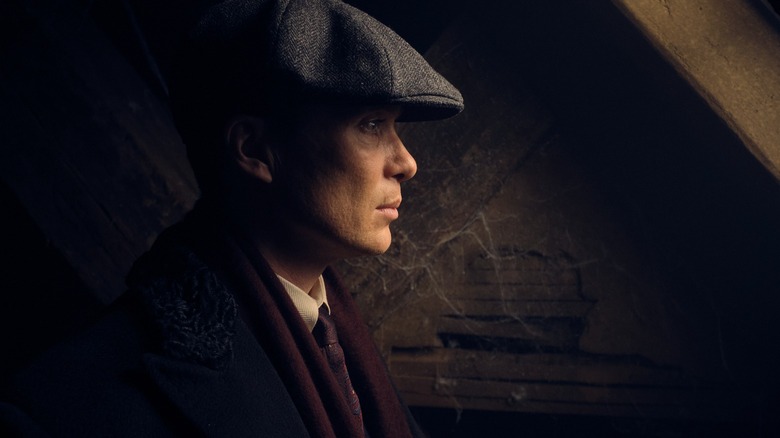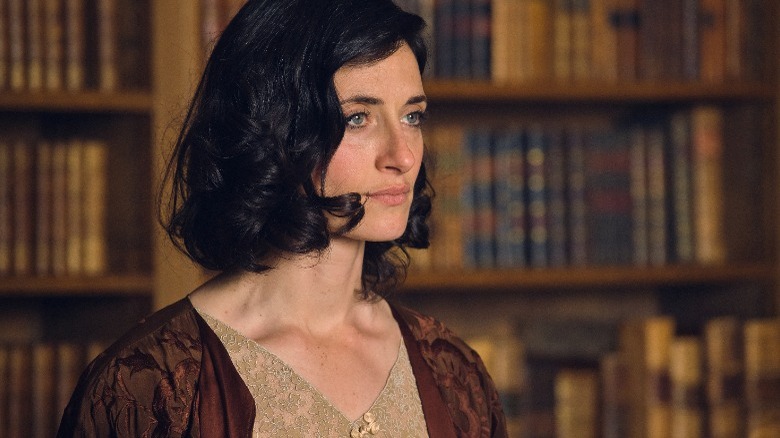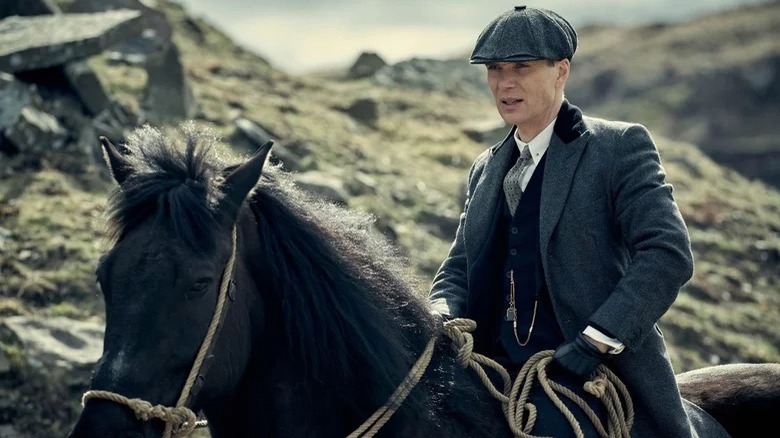How Peaky Blinders Takes Advantage Of History's Inherent 'Chaos'
"Peaky Blinders" is the kind of show that makes amateur history buffs of us all. Across its six seasons, the show mixes truth and fiction to tell a potent tale of the Peaky Blinders gang, a group that actually existed — but didn't do half the stuff we see in the show. It's easy to get caught up in the drama and action of "Peaky Blinders" and forget that not everything happening on screen is rooted in history, especially because the series gravitates around real events like the aftermath of the Anglo-Irish Treaty, the stock market crash of 1929, and prohibition.
According to series creator Steven Knight, there's a method to the show's madness when it comes to choosing a focal point through which to view history. In a conversation with Den of Geek, the filmmaker shared his theory about the artificially organized chaos of history, and how it impacts what the outlet calls the "mythological sheen" of the series. "I suppose that first of all, looking at history you can take that as a very basic starting point where you say, okay, this is a period of history and these events happened, you've got the events, you can take that, and then you look at real characters," Knight said, describing basic historical fact or fiction that doesn't include the same embellishments as "Peaky Blinders."
Finding a pattern in the chaos
"My research wherever possible is looking at real characters, not significant players in historical events but people who were around at the time and to see the true stories of those people," Knight explained. The series includes many such characters: people whose names wouldn't be in history books, but who witnessed major events nonetheless. Knight also describes the difficult task of finding the shape of history, saying, "In my opinion, history is chaotic and historians step back twenty years later and make a pattern of it, which is fine." He says that historians imagine "that everyone living in that time" fit into "a pattern," but that in reality, history is more chaotic than that.
The "Peaky Blinders" creator told Den of Geek:
"You can see within that chaos a pattern that you might want to take advantage of. In a sense, the Shelby family story is the story of the working class between the wars or after the war, if you want to look at it that way."
He also describes the sometimes-surreal show's relationship to realism like that of a dream, where the setting and dialogue are real, but adds that "there should be something other than that seems to come from somewhere else, and the symbolism within Peakies is meant to be like that."
The Shelby family is our link to history
While the talk may seem a bit lofty, what Knight's saying about picking an entry point for history makes sense. Historiography is the study of written history, a practice that involves looking not just at who was written about in the past, but at who was left out and why. "Peaky Blinders" doesn't center powerful people in a traditional sense — it doesn't care about the nobles, royals, or establishment leaders who would make the history books. Instead, it turns its gaze to the fictional Shelby family, led by Cillian Murphy's Tommy, whose strife and success stands in for the real-life exploits of hardscrabble people who carved out their own corner of the world in the early 1900s.
Knight is set to shape the chaos into something great at least one more time: although its television run has ended, "Peaky Blinders" is set to return (and likely conclude) with a feature-length movie that might start shooting next year.


